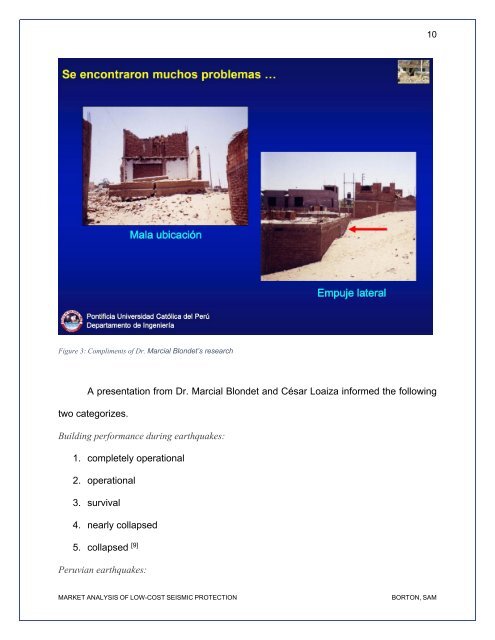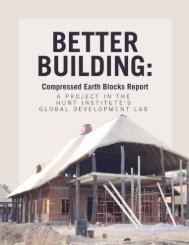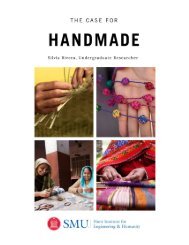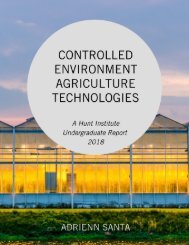Seeking Low-Cost Seismic Protection for Urban Masonry in an Unstable Terrain
Earthquakes pose a significant threat to housing in developing countries. The citizens of these countries often lack the financial means to sufficiently protect their homes against seismic actions. In accordance with the eleventh UN Sustainable Development Goal (SDG), steps need to be taken to protect these vulnerable populations from the looming possibility of a severe earthquake. Specifically, the geographic location of Peru designates it as an especially earthquake-prone country, and many of its citizens cannot afford seismic reinforcement for their homes. Middle-class, urban residents, such as those in Lima, Peru often reside in informally constructed confined masonry houses which, in the case of a severe earthquake, would likely suffer significant damage or even collapse. For this reason, the seismic protection market is increasingly narrowing its focus to low-cost solutions. This report summarizes the existing low-cost propositions and discusses to what extent they would provide a feasible option for the aforementioned target population in Peru. Finding that even these “low-cost” solutions are out of reach for most of the middle-class residents of Lima, this report makes an alternate proposition. Rocking isolation offers great potential as an innovative and economical seismic protection alternative, but it has yet to be implemented as low-cost housing reinforcement. This emerging system of seismic protection could fill a gap in the market as it may provide a sufficiently low-cost accessible manner of protecting confined masonry homes.
Earthquakes pose a significant threat to housing in developing countries. The citizens of these countries often lack the financial means to sufficiently protect their homes against seismic actions. In accordance with the eleventh UN Sustainable Development Goal (SDG), steps need to be taken to protect these vulnerable populations from the looming possibility of a severe earthquake. Specifically, the geographic location of Peru designates it as an especially earthquake-prone country, and many of its citizens cannot afford seismic reinforcement for their homes. Middle-class, urban residents, such as those in Lima, Peru often reside in informally constructed confined masonry houses which, in the case of a severe earthquake, would likely suffer significant damage or even collapse. For this reason, the seismic protection market is increasingly narrowing its focus to low-cost solutions.
This report summarizes the existing low-cost propositions and discusses to what extent they would provide a feasible option for the aforementioned target population in Peru. Finding that even these “low-cost” solutions are out of reach for most of the middle-class residents of Lima, this report makes an alternate proposition. Rocking isolation offers great potential as an innovative and economical seismic protection alternative, but it has yet to be implemented as low-cost housing reinforcement. This emerging system of seismic protection could fill a gap in the market as it may provide a sufficiently low-cost accessible manner of protecting confined masonry homes.
Create successful ePaper yourself
Turn your PDF publications into a flip-book with our unique Google optimized e-Paper software.
10<br />
Figure 3: Compliments of Dr. Marcial Blondet’s research<br />
A presentation from Dr. Marcial Blondet <strong>an</strong>d César Loaiza <strong>in</strong><strong>for</strong>med the follow<strong>in</strong>g<br />
two categorizes.<br />
Build<strong>in</strong>g per<strong>for</strong>m<strong>an</strong>ce dur<strong>in</strong>g earthquakes:<br />
1. completely operational<br />
2. operational<br />
3. survival<br />
4. nearly collapsed<br />
5. collapsed [9]<br />
Peruvi<strong>an</strong> earthquakes:<br />
MARKET ANALYSIS OF LOW-COST SEISMIC PROTECTION<br />
BORTON, SAM













